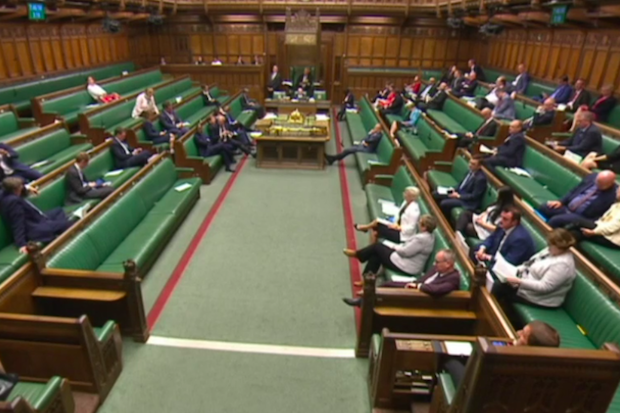One of the most noticeable things about MPs as they amble around Westminster today is how tired so many of them look. They’ve been kept up late the past two nights by unusually long sittings of the House of Commons, with the final three-line whipped votes not taking place before 10pm on both days. On Monday, it was the second reading of the EU Withdrawal Bill, and last night a prolonged debate on the Finance Bill meant everyone had to hang about until later to vote on Andrea Leadsom’s plan to make the Conservatives appear to have won the election outright after all by guaranteeing the government a majority on all public bill and secondary legislation committees.
These late-night and even all-night sittings were just par for the course for MPs until the early 2000s, when New Labour decided to bring the business of the Commons to an end by 10pm at the latest. ‘Family-friendly’ sitting hours were introduced by the Coalition government in 2012. Of course, there’s nothing particularly family-friendly about a sitting finishing early if you happen to be an MP for a Scottish seat, for instance, as you aren’t going to get home to pick your children up from school in your constituency anyway. But they are still family-friendly in the sense that MPs are not all cooped up together in Parliament until late at night on a regular basis. Frequent late-night sittings encourage a sort of dismal middle-aged Freshers’ Week atmosphere among MPs, where they all end up drinking together on such a regular basis that they also end up doing other things together which aren’t very family friendly, either. This is a point missed by advocates of some kind of cheap boarding house for all MPs to save taxpayers’ money on rent: if you coop them all up together night after night, you’re not going to end up with particularly healthy, happy or indeed normal parliamentarians. It is already trendy to criticise the Westminster Bubble: late sittings and a boarding house really would make MPs out of touch as they wouldn’t even leave the parliamentary estate for days.
It’s not just about MPs’ personal lives, though. Frequent late-night sittings are such an unproductive use of parliamentarians. They end up too tired to function well during the day, yet appear to be working mammoth shifts. Doctors might recognise these points from their recent disputes with Jeremy Hunt about their pay and hours: even very healthy and capable people lack judgement when they are exhausted. So they miss things: and while a doctor blundering has deadly and immediate consequences, MPs are supposed to be scrutinising and approving our laws. We don’t want them to be too tired to notice whether those laws are actually bad bills which need changing.
This is why good whips might want to avoid too many late nights in Parliament, even in a minority government where everything goes to the wire. But there are good reasons for the whips on both sides finding long sittings rather convenient. Traditionalists in Labour and the Tories in particular favour all-nighters as they believe that you can wear rebels on your own side or ministers trying to defend an unpopular point into submission. There comes a point when a person is so tired and fed up of seeing their colleagues for a third late night running that they’ll agree to anything.
But what happened in last night’s prolonged debate wasn’t much to do with this sort of legislative game-playing. It was in fact a blunder by the Tory whips, who thought, wrongly, that Labour had actually managed to organise itself well enough to launch an ambush on their plans for committee membership. So they requested that as many Tory backbenchers as possible put in to speak in the Finance Bill debate in order to prevent the ambush. What then happened was that the Tories managed to ambush themselves, speaking for far longer than was necessary. So these weren’t clever tactics to make MPs sweat until they conceded. But even so, the late-night sitting is not a good thing for parliament, no matter how tactically useful it might seem.







Comments